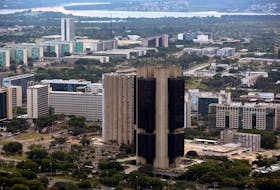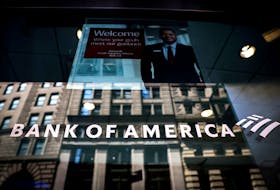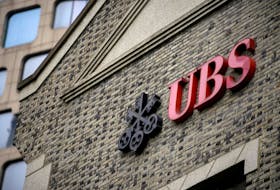SYDNEY, (Reuters) - - Australia's central bank believes it will likely have to cut interest rates further from the current record low of 1.25% in order to push down unemployment and revive growth in wages and inflation.
Minutes of the Reserve Bank of Australia's (RBA) June policy meeting showed its Board decided cutting rates by a quarter point at that meeting would help speed up the economy, but would not be enough on its own.
"Given the amount of spare capacity in the labour market and the economy more broadly, members agreed that it was more likely than not that a further easing in monetary policy would be appropriate in the period ahead," the minutes showed.
Financial markets have already priced in another rate cut to 1% by August and a further move to 0.75% by early next year.
The Board also noted that lower rate were not the only policy option available to assist with unemployment, echoing calls by RBA Governor Philip Lowe for government action on infrastructure spending and economic reform.
So far, the newly re-elected government of Prime Minister Scott Morrison has downplayed the need for fiscal stimulus and stuck to plans for returning the budget to surplus in 2019/20.
The Liberal National Coalition won re-election in mid-May, beating the favoured Labor Party.
Tuesday's minutes showed the Board judged lower rates would support the economy by pushing down the value of the Australian dollar. The currency has duly fallen to five-month lows since the RBA's June 4 meeting.
Lower rates would also reduce debt repayments by households, so freeing up extra cash, while lowering borrowing costs for business, the minutes showed.
The Board acknowledged that cutting rates crimped returns for savers, but felt the overall impact would be to support economic growth.
Members also saw little risk that easing policy would lead to a risky rise in household borrowing or to an unexpectedly strong pick up in inflation.
Indeed, the Board judged that the factors suppressing inflation and wage growth would last for some time given the extent of spare capacity in the labour market.








